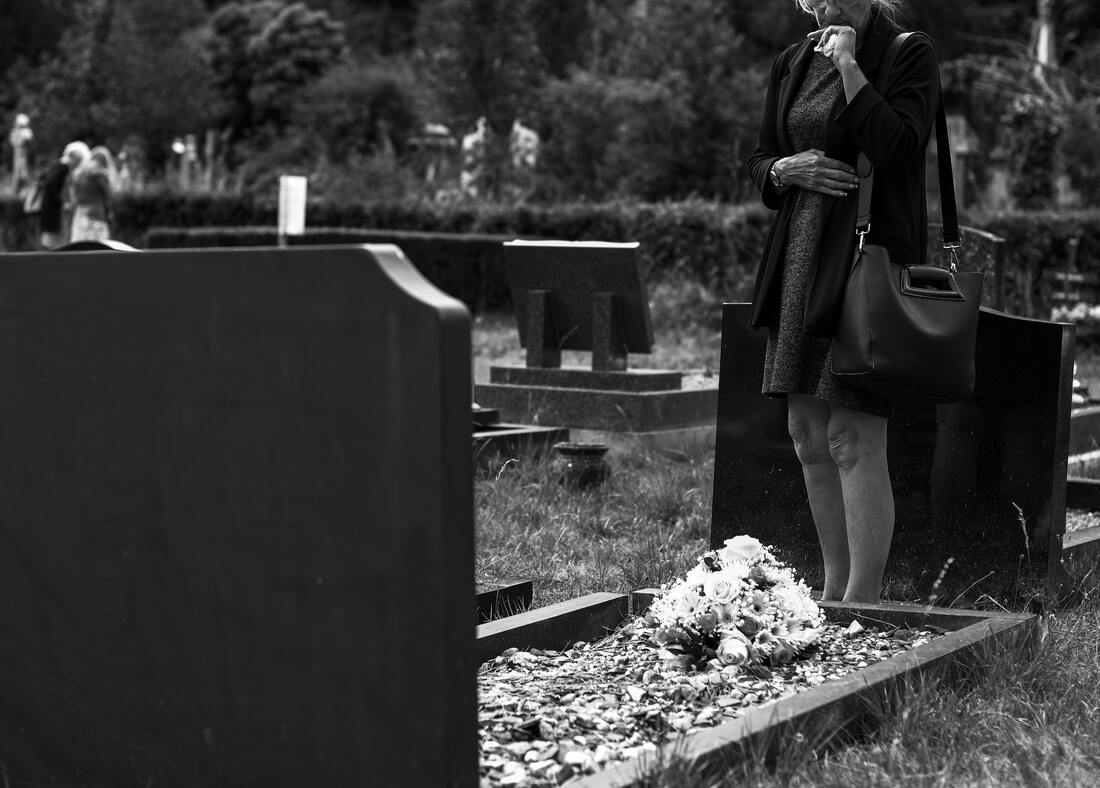|
In Western culture, whenever the theme of death comes up in a conversation, someone immediately says “let’s talk about something more cheerful”. We don’t talk about death or grieving even though, everyone will die and experience grief. So, when we experience the loss of a loved one for the first time, we’re not sure what should be said or done and most importantly how to deal with the grief. After a loss of a loved one we tend to become vulnerable and of course, this is the perfect opportunity for phobias to take control. Why is this? Well, our brain processes physical and emotional pain in the same way. Pain is pain. And what are our bodies designed to do? Keep us away from harm. Thus, the brain avoids the process of grieving up to years after the initial loss by creating phobias. What phobias could avoiding grief result in? Fear of Intimacy/Aphenphosmphobia If you’ve lost someone you confided in such as your partner or best friend. You may be afraid that once you move on if you open yourself up again to someone new, you will lose them as well. The mentality becomes everyone leaves so why should I bother creating another meaningful relationship. You may avoid any opportunities to meet people or unconsciously sabotage yourself once an opportunity presents itself. Say you’re invited to a dinner party before you go, you may begin to shake, sweat and even have a panic attack. This is your mind telling you to avoid the ‘threat’. If you allow this moment to take control you will only feel lonelier and more disappointed after. Another reason someone may be afraid of making new connections is that they will eventually have to retell the story of their loss which can be awkward, embarrassing and extremely painful. To learn more about the fear of intimacy, click here. Fear of Happiness/Cherophobia After experiencing a loss someone might be afraid that if they ever become so happy something bad will happen again just like it did before. They may also feel guilty for being happy without the person they lost especially if the loss happened abruptly. There are no guidelines on how long you should grieve for and you may feel obligated to remember that person every day for the rest of your life. The first day you realise you didn’t think of the person you lost, can be even harder as it is scary to think you might forget the person. To learn more about the fear of happiness, click here. Fear of being Alone/ Monophobia Although mourners tend to push others away, deep down they crave for meaningful connections just like everyone else if not more so. They fear that they will never be able to make friends or meet a new partner again or that their closest family members will also die, and they won’t have anyone to lean on. The problem with pushing others away is that to get past a death it is advised to talk to someone about feelings and struggles. To learn about the fear of being alone, click here. Attachments to people can seem like a bad idea for someone mourning but once you overcome your phobias, it can speed up your recovery. You can’t sabotage your future opportunities for something that happened in the past. You owe it to yourself to take your time to heal, get support from groups or friends and professional help if you feel it is necessary.
0 Comments
Leave a Reply. |
AuthorAdam Cox is the founder of Phobia Guru, Hypnoslimming and Addiction Experts. Based in Harley Street. Archives
March 2019
Categories |
The UK's Leading Expert in Eliminating Phobias, Fears & Anxieties
- Home
-
Phobias
- Animal Phobias >
-
Medical Phobias
>
- Fear Of Blood: Hemophobia
- Fear Of Cancer: Carcinophobia
- Fear Of Death: Thanatophobia
- Fear Of Dentist: Dentophobi
- Fear Of Doctors: Latrophobia
- Fear Of Germs: Mysophobia
- Fear Of Fungus or Mould: Mycophobia
- Fear Of Hospitals: Nosocomephobia
- Fear Of Needles: Trypanophobia
- Fear Of Pain: Agliophobia
- Fear Of Vomiting: Emetophobia
-
Situational Phobias
>
- Fear Of Clowns: Coulrophobia >
- Fear Of Crowded Spaces: Agoraphobia
- Fear Of The Dark: Nyctophobia
- Fear Of Flying: Aerophobia
- Fear Of Heights
- Fear Of Holes: TRYPOPHOBIA
- Fear of Friday the 13th: Paraskevidekatriaphobia
- The Fear of Buttons: Koumpounophobia
- Fear Of Lightning & Thunder: Astraphobia
- Fear Of Loud Noises: Ligyrophobia
- The Fear of Toilets
- Fear Of Men: Androphobia
- Fear Of Public Speaking: Glossophobia
- Fear Of Small Spaces
- Fear Of Water: Aquaphobia
- Fear Of Women: Gynophobia:
- The Fear of Being Pregnant: Tokophobia
- Abstract Phobias >
- Workshops >
- Phobia Cure
- Testimonials
- Press
- Contact
- Blog
- Home
-
Phobias
- Animal Phobias >
-
Medical Phobias
>
- Fear Of Blood: Hemophobia
- Fear Of Cancer: Carcinophobia
- Fear Of Death: Thanatophobia
- Fear Of Dentist: Dentophobi
- Fear Of Doctors: Latrophobia
- Fear Of Germs: Mysophobia
- Fear Of Fungus or Mould: Mycophobia
- Fear Of Hospitals: Nosocomephobia
- Fear Of Needles: Trypanophobia
- Fear Of Pain: Agliophobia
- Fear Of Vomiting: Emetophobia
-
Situational Phobias
>
- Fear Of Clowns: Coulrophobia >
- Fear Of Crowded Spaces: Agoraphobia
- Fear Of The Dark: Nyctophobia
- Fear Of Flying: Aerophobia
- Fear Of Heights
- Fear Of Holes: TRYPOPHOBIA
- Fear of Friday the 13th: Paraskevidekatriaphobia
- The Fear of Buttons: Koumpounophobia
- Fear Of Lightning & Thunder: Astraphobia
- Fear Of Loud Noises: Ligyrophobia
- The Fear of Toilets
- Fear Of Men: Androphobia
- Fear Of Public Speaking: Glossophobia
- Fear Of Small Spaces
- Fear Of Water: Aquaphobia
- Fear Of Women: Gynophobia:
- The Fear of Being Pregnant: Tokophobia
- Abstract Phobias >
- Workshops >
- Phobia Cure
- Testimonials
- Press
- Contact
- Blog


 RSS Feed
RSS Feed